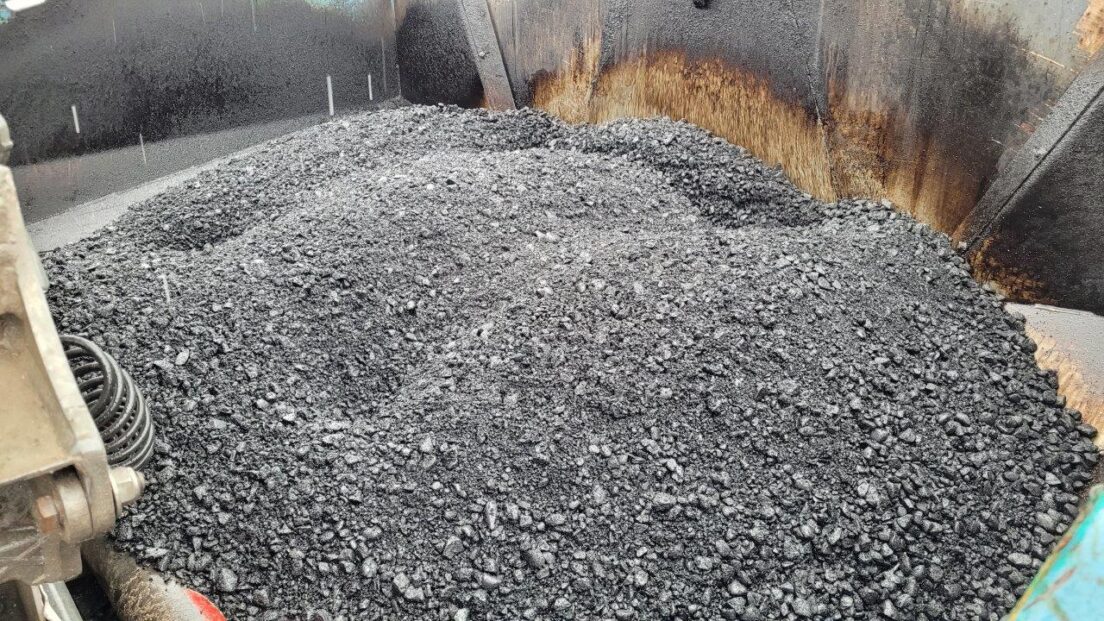“Green” asphalt: a milestone towards climate-friendly road construction

The Department of Construction and Transport of the Canton of Basel-Stadt has developed a CO2-negative asphalt together with a Basel institute for building materials technology. Thanks to vegetable carbon, it binds more CO2 than it causes. The high-quality road surface should considerably reduce the CO2 footprint of Basel's road construction. Annually, Basel-Stadt could thus permanently store around 450 tonnes more CO2 equivalent in Basel's roads than asphalt production causes.
By 2037, Basel-Stadt aims to reduce its greenhouse gas emissions on cantonal territory to net zero. Conventional asphalt used in road construction produces greenhouse gases. The canton plans to carry out road renovations in a targeted manner and to use asphalt sparingly, in a degradable and sorted manner. In future, “green” asphalt with vegetable carbon will be used for renovations in order to reduce the CO2 footprint of road construction.
IWB in Basel produces certified vegetable carbon from green waste in a plant under oxygen exclusion. The heat released is used for the district heating network. The remaining plant carbon contains the carbon component of the CO2 extracted during plant growth. This removes CO2 from the atmosphere in the long term. The Basel-Stadt Civil Engineering Office and the Institute for Construction Materials Technology ViaTec Basel AG have developed and tested asphalt mixtures with plant carbon. Vegetable carbon asphalt meets Swiss standards, is of high quality and durable. The costs are slightly higher than for conventional asphalt.
Since 2022, the plant charcoal asphalt has been tested on a recycled construction material transfer site. Positive results show that one tonne of the mixture permanently binds 50 kilograms of CO2. The CO2 sequestration exceeds the release during production, transport and paving. The pavement is “CO2-negative”. The area-wide use of this technology is planned.
The Basel-Stadt civil engineering office is working with regional pavement mixing plants to simplify the production of the mix. The civil engineering offices of Basel-Landschaft and Basel-Stadt are exchanging experiences. The Construction and Transport Department of Basel-City is planning to use vegetable charcoal asphalt throughout the country for road rehabilitation. This could save around 1,250 tonnes of CO2 equivalent annually and exceed the amount of CO2 produced by road construction by 450 tonnes.